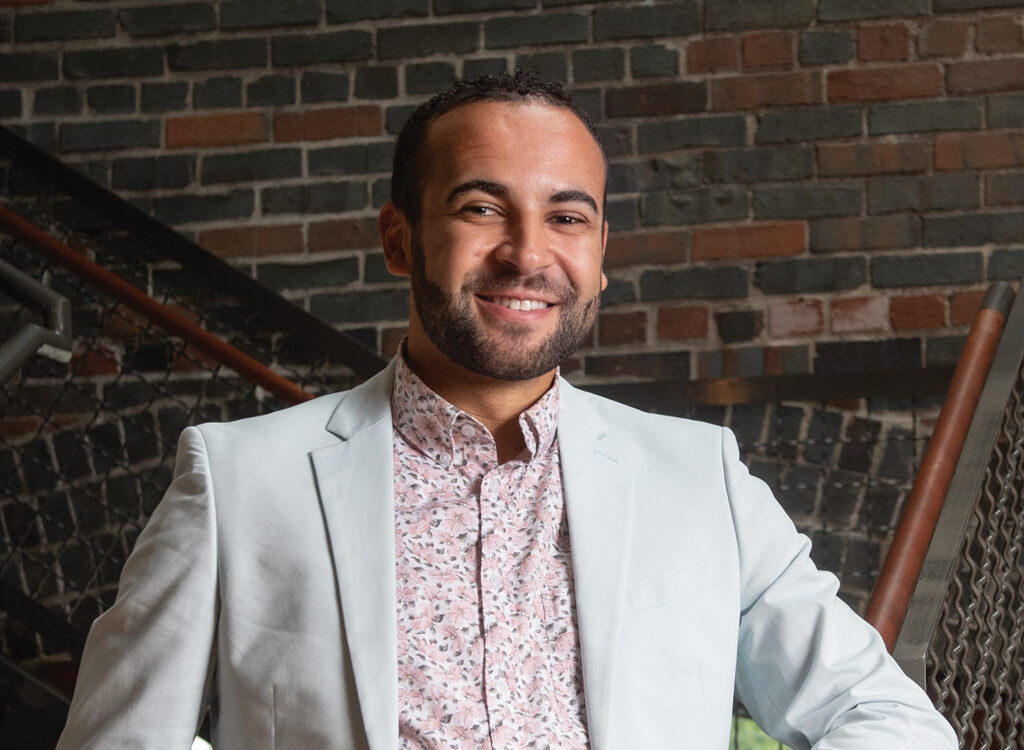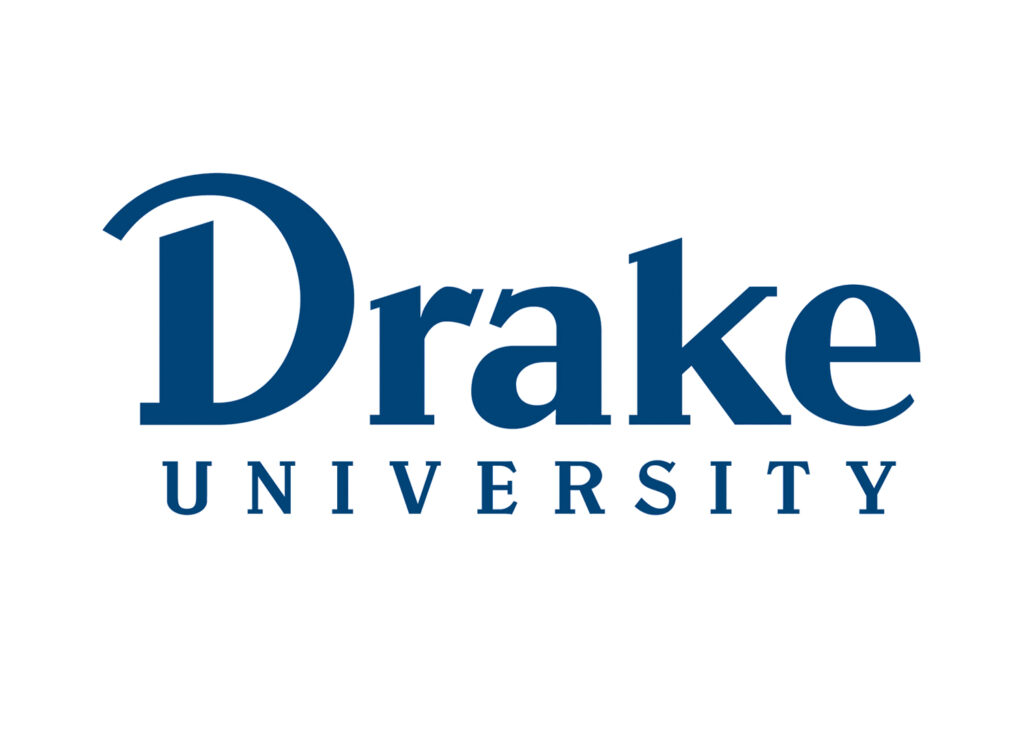How They Built it
Lessons from five of Iowa’s brightest entrepreneurial builders

The Business Record hosted its first Power Breakfast of the year, and assembled a panel of entrepreneurial minded business leaders for the event titled “How They Built It.”
In an effort to share their wisdom, we had our staff compile a few key lessons from each of the panelists, who each brought a slightly different perspective to the panel.
The panel included:
Casey Niemann – Founder of AgriSync, a growing startup he began after deciding to leave the relative safety of Microsoft and the corporate world.
Tiffany Johnson – Co-founder and producing artistic director, Pyramid Theater Company, which was founded in 2015 to help illuminate the presence of black artists in theatre canon and provide a means of artistic expression to emerging black voices.
Nancy Mwirotsi – Founder and executive director of Pursuit of Innovation. She’s from Kenya originally and began her nonprofit to empower refugees and underserved youth through teaching technology skills.
Chris Nelson – President and CEO of Kemin Industries, While he didn’t found the business, as its second generation leader he’s taken an established business instilled the entrepreneurial spirit, and started nine different startups within the company.
Connie Wimer – Chairman of Business Publications Corporation. Not only did she start the Business Record, but 20 years later she started dsm Magazine, later helped launch WineFest and has continued to create new products within the business for 35 years.
Chris Nelson, president and CEO, Kemin Industries
Learning from failure
Nelson on learning from failure: “Part of our growth has really come from starting new businesses inside our business. We have done this nine different times and failed spectacularly with three of them — but I’ve been very fortunate with some of the others. And one of our most recent now is to bring medical cannabis to the state.”
Do your homework
Nelson on good research: “I would say, especially in the three that didn’t work, that one of the mistakes we made was in not really doing very thorough advance work. We did some cursory advance work, but we didn’t really drill down and say, “This is the need, and it’s real.” And is it large enough to justify the type of sacrifices it’s going to take, whether it’s monetarily, intellectually.”
What are you glad you didn’t know upfront?
“I’m glad I didn’t know how long it would take customers to make a decision about the product. I was a scientist, and so I thought, “Here’s the data, so buy it now!””
What were your biggest challenges?
Nelson on his biggest challenge: “Sometimes we were very fortunate and were able to acquire a very large customer early on. One time we got a large customer and then lost them within nine months. Then you really rely on the faith in the idea. If you believe the product is solid, you really have to persevere. We ask our customers, “Why do you buy our products rather than our competitors’ products?” We take what they say and double down on what we do well.”
Tiffany Johnson, co-founder and producing artistic director, Pyramid Theater Co.
A life-changing event
Tiffany on why she helped start the company: “[When I got back into acting,] we decided that we were going to take an opportunity to start trying to show black work. And from the black perspective, we did a co-production at the [Des Moines] Social Club of “Fences” by August Wilson, which I was in that night. It was a life-changing experience for all of us that were on the stage. And all of a sudden, our story was being told from our own platform, and people were being able to see and hear about our culture. [After I participated in two plays] seven of us who wanted to see art being done from that platform all the time decided we would get together and create what is now Pyramid Theater Co.”
Taking risks
Tiffany on taking risks: “It’s a tough market to try to create a company that is specifically related to culture in an area where you are literally the minority. It is a risk to get people to buy into that. But fear in conflict with faith, so if you ever create something you really believe in, you have to have faith in it. You have to have faith that you are doing the right things, that you are making the right choices at the right time. Everybody isn’t going to always have the answer for you. Sometimes the answer is in you. Feelings are not facts. Don’t get caught up in your feelings, because they are not factual. Really home in on believing in yourself.”
Nancy Mwirotsi, founder and executive director, Pursuit of Innovation
Finding her passion
An experience with a refugee family in need compelled Nancy Mwirotsi to her passion for helping connect refugee children with technology classes.The family from Burundi needed warmer clothing and food. Mwirotsi, who is from Kenya, helped the single mother get a job. She noticed there were programs for refugee boys but not girls. The daughter was giving her mother a harder time. Mwirotsi, who calls herself a tech dropout, then began a dance class for these girls. “I was tired of seeing kids who were smart not given a chance to succeed.” That dance class morphed into the tech classes and the nonprofit Pursuit of Innovation. “I had no intention of starting anything,” Mwirotsi said. “I have no idea what I am doing, but I am learning every day.”
What wisdom would you share?
“Believe in your ability to bring about change.”
Casey Niemann, founder, AgriSync
Support at home
Casey Niemann had all the qualms any entrepreneur might experience when deciding to leave a career at Microsoft Corp. to bring a human touch to cold and impersonal technology used down on the farm. Growing up on a farm in Kansas, he often would hear his father and uncle talk about the need for a knowing person to guide the use of technology and interpret the data it gathered. He was driving home from a sales incentive trip while still with Microsoft, talking about the future with his wife, Tammy, when the decision was made that Casey would leave the corporate world and pursue his dream. AgriSync was founded as a result. Niemann said that venturing into the startup world without the support of family or friends you can count on can be a harrowing venture. “For a lot of people, there’s always that kind of entrepreneurial whisper, if you will, in the back of their mind that says I’d like to do this or I’d like to, you know, start this, but until they have maybe the encouragement or the belief of someone else, get them to do that. It makes a huge difference. … I was obviously blessed to have my wife, my best friend, say, ‘Yes, you can do this.’ But taking that leap of faith also means that oftentimes your dream is someone else’s sacrifice.”
Let’s talk about it
Niemann said it can be difficult for an entrepreneur to hand off tasks. After all, the business is your baby; your money is on the line; you have the passion. “So my therapist said, ‘Just talk about it in front of a large audience,’ ” Niemann told the standing-room-only crowd at the Power Breakfast.
Success is all about the failures
This isn’t a new thought. Gather a roomful of people who have found success in business and you’re also looking a roomful of people who have failed at some point. Niemann, whose comments often left the impression that he can find humor hidden beneath any stubborn rock, pointed to his former employer, Microsoft. “Think about it, startups every day are living and dying on failure, right? They’re saying, ‘How fast can I fail? And what can I learn from it?’ And big companies are saying, ‘I don’t want to fail because I’m afraid I’m going to be associated with’ — the Windows phone is a good example from my prior life — ‘because I don’t want to go down with the ship, right?’ And so my encouragement is, what are you doing to foster kind of that freedom to fail inside of your organization?”
Connie Wimer, chairman, Business Publications Corporation
The beginning of Business Publications Corporation
Connie on the beginning of BPC. “Probably very few in the room are old enough to remember a little publication called the Des Moines Daily Record. It was the official legal paper for Polk County, and I purchased it to gain access to the information more quickly for Iowa Title Co., which I owned at the time. My plan was to speed up the service by getting the information more quickly. A year and a half after I had I had purchased it on a 20-year contract, the judges decided that they didn’t need a legal paper any longer and gave me five days’ notice. [It was a] scary, scary time in my life. I decided we would change from a legal paper to a business paper. I knew nothing about the publishing business and I made every mistake in the book.”
Promoting small business
Connie on promoting small business: “I give a lot of credit to what was then the chamber and is now the Partnership [in promoting small businesses]. Thirty-five years ago, the United States thought that big business was the most important thing and sort of ignored small business. There were a couple of White House conferences on small business. I developed a passion for promoting small business. As [BPC] continued to grow, we probably now have more than 35 different publications. Many of those are fueled by passion. [For example,] I got involved with Johnny Danos on a mental health project a number of years ago, and a couple of years ago we started publishing Lifting the Veil to get people to talk about mental health and reduce the stigma.”









